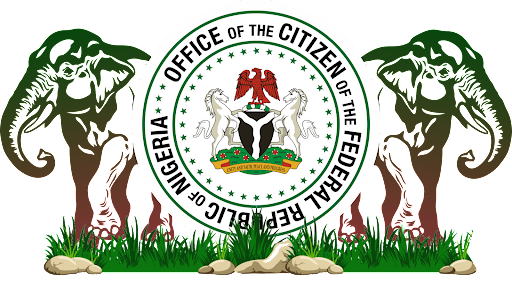[By Soji Apampa]

Elites from northern Nigeria are political heavyweights; this is difficult to dispute. Elites from southern Nigeria are economically heavy weights, which is also hard to dismiss. The two have been incessantly at each other like squabbling sisters very close in age. This had gone on for as far as anyone can remember but notably since 1960 when Nigeria became an independent State. They seem hell-bent on seeing this through till the bitter end as they each want what the other one has, selfishly carrying on and ignoring the consequences of their battle of attrition on the rest of the house. To complete the African adage suggested by the title of this piece, “When two elephants fight, it is the grass that suffers!”
The northern elites distrust their southern sister and have traditionally done everything they can to monopolise public policy platforms. In contrast, the southern sister (who doubts them in return) has clung to her economic platforms. In the past six decades, they have fought each other for control of the use of force (only choosing to keep a fragile peace like the two nuclear powers during the Cold War through assurances of mutual destruction). They have also fought each other in a propaganda war employing threats of imposing religious fundamentalism from the northern side (like the Shari’a movement during the Obasanjo years, Boko Haram and ISWAP, all seen as a thinly veiled cover for the search for economic independence from the south) countered by threats of restructuring by pushing for a return to a blank sheet to either renegotiate Nigeria afresh or retreat to 1963-type regional governments or the outright secession from and parcelling up of Nigeria into several independent states (thinly veiled cover for the search for political independence from the north).
Make no mistake about it, the rhetoric used by each side has a significant impact on and traction each with their local supporters, thus egging them on towards a climax, a show-down like two school girls who have been exchanging insults publicly all day at school and are now ready to fight it out on the way home after school only it will be in front of a massive, excited crowd of their classmates who cheer the fight on. At this point, no one is ready to back down. Anything goes with sticks, stones, dust in the eyes, ripping the opponent’s clothes off to cause disgrace. Our elites have used nepotism, corrupt enrichment, abuse of office etc. to gain a competitive advantage over each other; they have even sabotaged and subverted the State by allowing insurgents to run riot to maintain the upper hand in a bid to ensure “if you carry out your threat, we all go down!”
Nigeria is about to be plunged into a mess because there is no one to call them both to order! The reader might argue that Nigeria is already in a mess, which would be spot on. But the mother of all calamities is yet to come if her political elites do not quickly arrive at a political settlement to their squabbles before we move too deeply into electioneering campaigns for 2023, as by then, the clamour for a ‘street fight’ would be so deafening that nothing but an act of God could stop it. The consequence could be to push Nigeria over the precipice finally. Luckily, we have seen potentially catastrophic street fights aborted through the intervention of individuals from the same crowd who wanted to be entertained by the battle but realised soon enough that the result wouldn’t be funny. They typically did this by pulling the warring parties away and taking them in opposite directions to cool off before attempting to resolve the conflict.
This points to the role of the citizenry in this whole mess. Their cheers have aggravated the choices of the elites and boxed them into what seems like a path to doom, and it feels like the country is approaching a point of no return. It appears from the analogy of the squabbling sisters that it is from within the ranks of the same citizens that the power lies to pull them back from the brink! The failure to engage, the seeming detachment from processes that determine and shape their collective future, and their readiness to take nonsense from their leaders have lulled them into a position where they think the citizens are indeed the grass or worse, the grassroots! It is time to call them to order by protesting waste and mismanagement, opposing ill-gotten gains, exposing the treasonable lack of patriotism and calling them to account. Citizens can force them to understand there is a powerful umpire in this issue, the people. This might cause a timeout on both sides to consider the error of their ways.
Does Nigeria need to call a timeout? You decide. If so, how long? How would the sisters be encouraged to reach a political settlement? What would a political settlement involve? At this stage, there are more questions than answers. Whether or not a timeout is called, a political settlement that prevents further degeneration of the conflict must be reached. It would at least put one sister in a position to absorb the hefty punches of the other one without keeling over while retaining the certainty of delivering her similar blows back to her sister without let or hindering her from inflicting equal pain till both see the futility of the fight continuing. They agree to dialogue out their differences, only this time, the citizens will umpire the process and call the shots. When two elephants fight, perhaps it is genuinely the grass that suffers, but it is time to stand and show that the citizens are trees and make up the forest; they are not the grass for their elites to stomp on!

Soji Apampa is the Co-Founder of The Integrity Organisation
